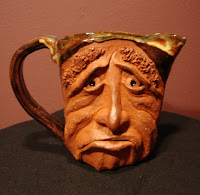Ryan Spilborghs' Beard, the Most Powerful Beard in the Galaxy, Comments on the Colorado Rockies and Other Less-Important Parts of Life.
Tuesday, March 9, 2010
Hooray For Spring!!! Featuring Part II of the "Coors Field Effect"
Hello dear readers! It is I, The Beard, enjoying another spring in Arizona! I must say, while I enjoy a nice quiet winter day on Earth as much as the next eternal entity, nothing beats spring, and spring sure comes early in Arizona. And speaking of "early in Arizona," the Rockies have looked pretty good so far. Cook and DLR have had impressive outings, and Jeff Francis' return to the mound, despite the expected hiccups, is encouraging. A good spring training doesn't always lead to a good season, but a good start to spring is better than a bad one.
This year, the Rockies find themselves in an unusual position: the favorite to win the NL West. While they prepare and get in shape this spring, I am also working out and getting trim (are you surprised, readers, that a time- and space-traveling Beard would have a sense of humor?) to be ready to help them take those steps towards greatness. I have much Beardly work to do in the next few weeks, and a few more days by the pool and watching baseball in the sun should have me just about ready to get to the job at hand. Until then, please enjoy the second of Year of the Beard's three-part series on the Coors Field Effect.
THE COORS FIELD EFFECT: PART II
Starring:
The Colorado Rockies
The Humidor
Starring:
The Colorado Rockies
The Humidor
and introducing "Duck-Hunting Boots" as The Staff of Ra
 |
| A Sad Pitcher... Get It? |
Subscribe to:
Comments (Atom)

